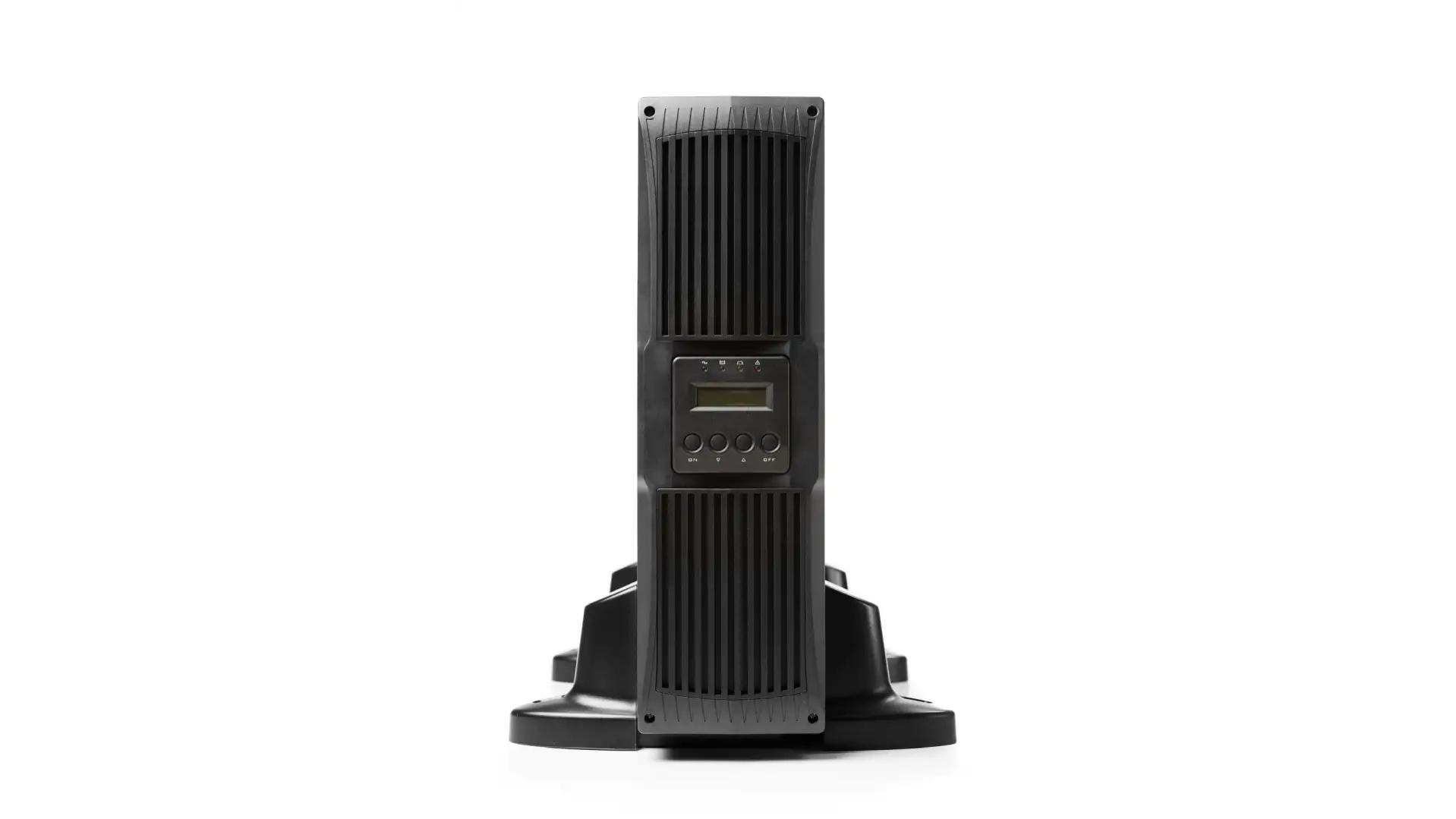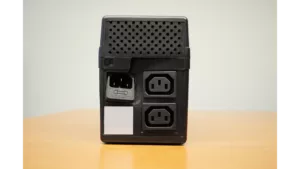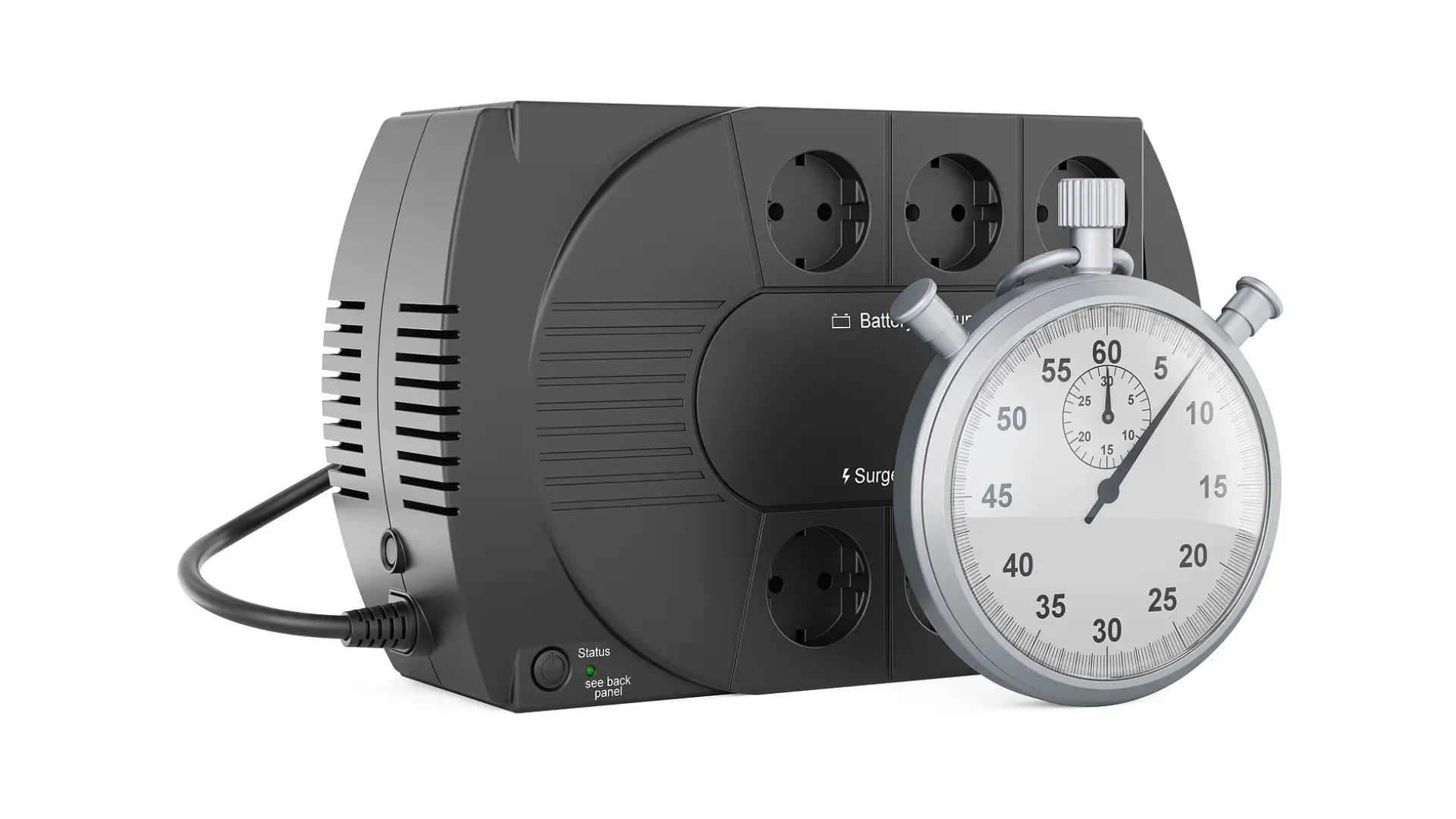
How Long Does Uninterrupted Power Supply Last
An Uninterrupted Power Supply (UPS) is an essential component in ensuring continuous power and protecting sensitive equipment from power interruptions and surges. The longevity of a UPS system is crucial for maintaining operational stability in both personal and professional settings.
This Uninterrupted Power Supply guide delves into the various aspects that influence the lifespan of UPS systems, provides detailed maintenance strategies, and offers insights on selecting the right UPS based on specific needs.
Understanding Uninterrupted Power Supply Systems
A UPS system serves as a bridge between your main power source and your equipment, ensuring that, in the event of a power failure, there is no immediate disruption.
It does this by storing power in a battery and then, upon detecting a power outage, switching seamlessly to battery power.
The primary purpose of a UPS is not only to provide emergency power but also to protect against voltage surges and spikes which can damage electronic equipment.
Types of UPS Systems
The choice of UPS system depends largely on the environment and the critical nature of the devices it supports:
- Standby UPS: Also known as an offline UPS, this is the simplest form. It remains idle until a power disruption occurs, at which point it switches to battery power. This type is suited for less critical applications like personal PCs or other home electronics.
- Line-Interactive UPS: This type incorporates technology that allows it to correct minor power fluctuations (under-voltages and over-voltages) without switching to battery. This intermediate-level UPS is ideal for small businesses and network devices.
- Double-Conversion (Online) UPS: For environments where power outages are frequent and equipment is highly sensitive, the online UPS provides the most comprehensive protection. It continuously converts incoming AC power into filtered DC power, and then reconverts it back to AC power before feeding it to protected devices.

Extending Uninterruptible Power Supply Battery Life
Maintaining the battery life of an uninterruptible power supply (UPS) is crucial for ensuring that it performs its core function of providing reliable backup power during electrical outages.
The battery life of a UPS determines how long it can continue to supply power without input from the external power grid.
Understanding how to manage and extend the battery life of your uninterruptible power supply can significantly enhance the reliability and efficiency of your backup power system.
Factors Influencing Uninterruptible Power Supply Battery Life
Several factors can impact the battery life of a UPS, and addressing these can help prolong the lifespan of your unit:
- Temperature Control: UPS batteries are sensitive to temperature fluctuations. The optimal operating temperature for most UPS batteries is around 20°C to 25°C (68°F to 77°F). Temperatures above or below this range can reduce battery efficiency and lifespan. Implementing climate control or positioning your UPS in a temperature-controlled environment can help maintain battery health.
- Proper Sizing: Ensuring that your UPS is correctly sized for your power needs is essential. An undersized UPS will have to work harder, leading to quicker battery depletion, while an oversized UPS can lead to underutilization of battery capacity, which can also degrade battery health over time.
- Regular Maintenance: Regular maintenance, including testing and inspection, helps identify and address potential issues that could affect battery life. This includes checking for signs of wear, corrosion on terminals, and ensuring connections are tight and clean.
- Cycling Frequency: The frequency with which the UPS battery is cycled affects its lifespan. Every battery has a finite number of charge-discharge cycles it can undergo before its capacity starts to degrade. Reducing the frequency of deep discharges and avoiding unnecessary discharges can extend the battery life.
- Use of Battery Management Systems: Advanced UPS models come with battery management systems that optimize charging cycles, manage load distribution, and provide valuable diagnostics to prevent overcharging and undercharging — both of which can reduce battery life.
Best Practices for Maximizing UPS Battery Life
Implementing a few best practices can greatly enhance the battery life of your uninterruptible power supply:
- Calibration: Perform regular battery calibrations to ensure the battery meter accurately reflects the charge levels. This prevents the UPS from unexpectedly running out of power.
- Battery Replacement: Even with optimal care, UPS batteries do not last forever. Typically, UPS batteries need replacement every 3-5 years, but this can vary based on usage and conditions. Adhering to a scheduled replacement program avoids performance issues and potential failures.
- Use Quality Batteries: When replacing batteries, choose high-quality ones that match the specifications required by your UPS. Quality batteries not only last longer but also provide more reliable performance.

Choosing the Right UPS for Your Needs
Assessing Power Requirements
To accurately select a UPS, it's crucial to start by calculating the total wattage of all devices that will be connected. This not only helps in selecting a UPS system that can comfortably handle the expected load but also prevents the inefficiencies associated with both under and over-sizing. Consider the following:
- List all equipment: Include computers, monitors, network devices, and any other essential hardware.
- Check power ratings: Look at the manufacturer's specifications for power consumption, typically listed in watts.
- Add a buffer: It's advisable to add a 20-25% buffer to the calculated total to accommodate future additions and to ensure the UPS can handle peak power demands, which may be higher than the standard operational consumption.
Consider Runtime
Determining the required runtime of a UPS involves understanding the length of time your systems need to operate during a power outage. This aspect is crucial for continuity in business operations or for ensuring data integrity in personal setups. Here’s what to consider:
- Essential vs. Non-essential Loads: Identify which systems must remain operational throughout an outage and which can be shut down immediately.
- Runtime requirements: Evaluate how long these critical systems need to stay online. For instance, enough time to save work and shut down systems safely, or to keep server operations running until a generator kicks in.
- Battery capabilities: Different UPS models will offer varying battery expansions. Higher-capacity batteries or additional battery modules can extend runtime significantly.
Future-Proofing
As technology and your power needs evolve, it's essential to choose a UPS system that can adapt to changing demands. Opting for a modular or scalable UPS can be more economical over the long term. Consider these points:
- Scalable power and runtime: Some UPS systems allow you to add more batteries or capabilities as your power needs grow, eliminating the need to purchase an entirely new system.
- Compatibility with new technology: Ensure the UPS can support new equipment types, including energy-efficient devices and those with different power requirements.
- Upgradeable firmware and software: A UPS that supports updates to its firmware or management software can adapt to new technologies and standards, extending its operational relevance and efficiency.

Uninterruptible Power Supply Performance and Durability
- Uninterruptible Power Supply Life Expectancy
The life expectancy of an uninterruptible power supply (UPS) depends on several key factors including the quality of its components, maintenance practices, and operational load. Typically, the uninterruptible power supply life expectancy can range from 10 to 15 years.
However, for a UPS to reach or exceed its life expectancy, it's crucial to adhere to recommended maintenance schedules and to ensure that the device is operated within its specified capacity limits.
- Uninterruptible Power Supply Lifespan
Extending the uninterruptible power supply lifespan involves careful consideration of battery type, usage patterns, and environmental conditions.
A UPS designed with high-quality batteries and advanced cooling systems can significantly improve the uninterruptible power supply lifespan.
Regular battery replacements and upgrades are essential for maintaining the UPS's performance and longevity, especially in environments where power demands are high.
- Uninterruptible Power Supply Long Lasting
To achieve an uninterruptible power supply long lasting, it is essential to minimize exposure to conditions that can degrade its components.
Factors such as excessive heat, moisture, and dust can impact the uninterruptible power supply's long-lasting capabilities.
Implementing a proactive maintenance program, including frequent inspections and component testing, can prevent premature wear and ensure a long-lasting uninterruptible power supply.
- Uninterruptible Power Supply Run Time
Uninterruptible power supply run time refers to the duration a UPS can provide power to its connected devices during an outage.
The uninterruptible power supply run time is primarily determined by the battery capacity and the total load of the connected equipment.
To maximize uninterruptible power supply run time, it's advisable to regularly test the system under load conditions and consider scalable solutions that allow for additional battery modules if longer run time is necessary.
- Uninterruptible Power Supply Time
Managing the uninterruptible power supply time effectively involves understanding the total expected duration of power support during interruptions. This not only includes the uninterruptible power supply run time but also the time required for systems to shut down or transition to alternate power sources safely.
Enhancing the uninterruptible power supply time can be achieved by optimizing the power load, upgrading battery solutions, and integrating the UPS with energy management systems to efficiently distribute power during outages.
Frequently Asked Questions (FAQs)
How long do uninterruptible power supplies last?
Uninterruptible Power Supplies (UPS) typically have a lifespan of 10 to 15 years depending on several factors such as maintenance, environmental conditions, and the frequency of power outages affecting its use. However, the batteries, which are a critical component of a UPS, generally require replacement every 3 to 5 years to ensure optimal performance.
How long does an uninterruptible power supply last?
The duration for which a UPS can provide power during an outage is known as its “runtime” and varies greatly depending on the model and configuration of the UPS, the condition of its batteries, and the total load of the connected devices. Small UPS systems may provide power for a few minutes, enough to safely shut down equipment, while larger systems can run for hours to maintain critical operations.
Uninterruptible power supply: How long does it last?
For immediate power needs during an outage, a UPS is designed to last long enough to either safely shut down protected equipment or bridge the gap until a more permanent power source, like a generator, comes online. The specific runtime can be determined by calculating the total power requirements of the connected devices and comparing it with the UPS's capacity, which is usually measured in watt-hours.
What factors influence the lifespan of a UPS system?
The primary factors include the quality and type of its batteries, the ambient environmental conditions like temperature and humidity, and the electrical load placed on the system. Regular maintenance and timely battery replacements are also crucial to maximize the lifespan of a UPS.
How can I extend the life of my UPS?
To extend the life of your UPS, perform regular maintenance checks, keep the environment around the UPS clean and free of dust, maintain an optimal temperature and humidity level, and ensure that the UPS is not consistently running near its maximum capacity. Additionally, updating the UPS firmware and using energy-efficient settings can also help prolong its effective lifespan.
Are there different types of UPS batteries?
Yes, there are mainly three types of batteries used in UPS systems: Valve-Regulated Lead-Acid (VRLA) batteries, Flooded Cell or Vented Lead Acid batteries, and Lithium-Ion batteries. Each type has its own advantages, lifespan, and maintenance requirements. VRLA batteries are maintenance-free but typically have a shorter lifespan, while Flooded Cell batteries offer longer life but require regular maintenance. Lithium-Ion batteries, though more expensive, provide a longer lifespan and higher efficiency.
What should I consider when choosing a UPS for my business?
When selecting a UPS for business use, consider the criticality of the equipment to be protected, the required runtime during power outages, the total power capacity needed, and the physical space available for the UPS system. It's also advisable to look for UPS features that can scale as your business grows, such as modular designs that allow for easy expansion.
How Long Does Uninterrupted Power Supply Last Conclusion
continue reading
Related Posts
Uninterruptable Power Supplies In today's world, where technology keeps us […]
Uninterruptible Power Supply For Laptop In today's fast-paced digital world, […]
Small Uninterruptible Power Supply In today's digital age, where connectivity […]



